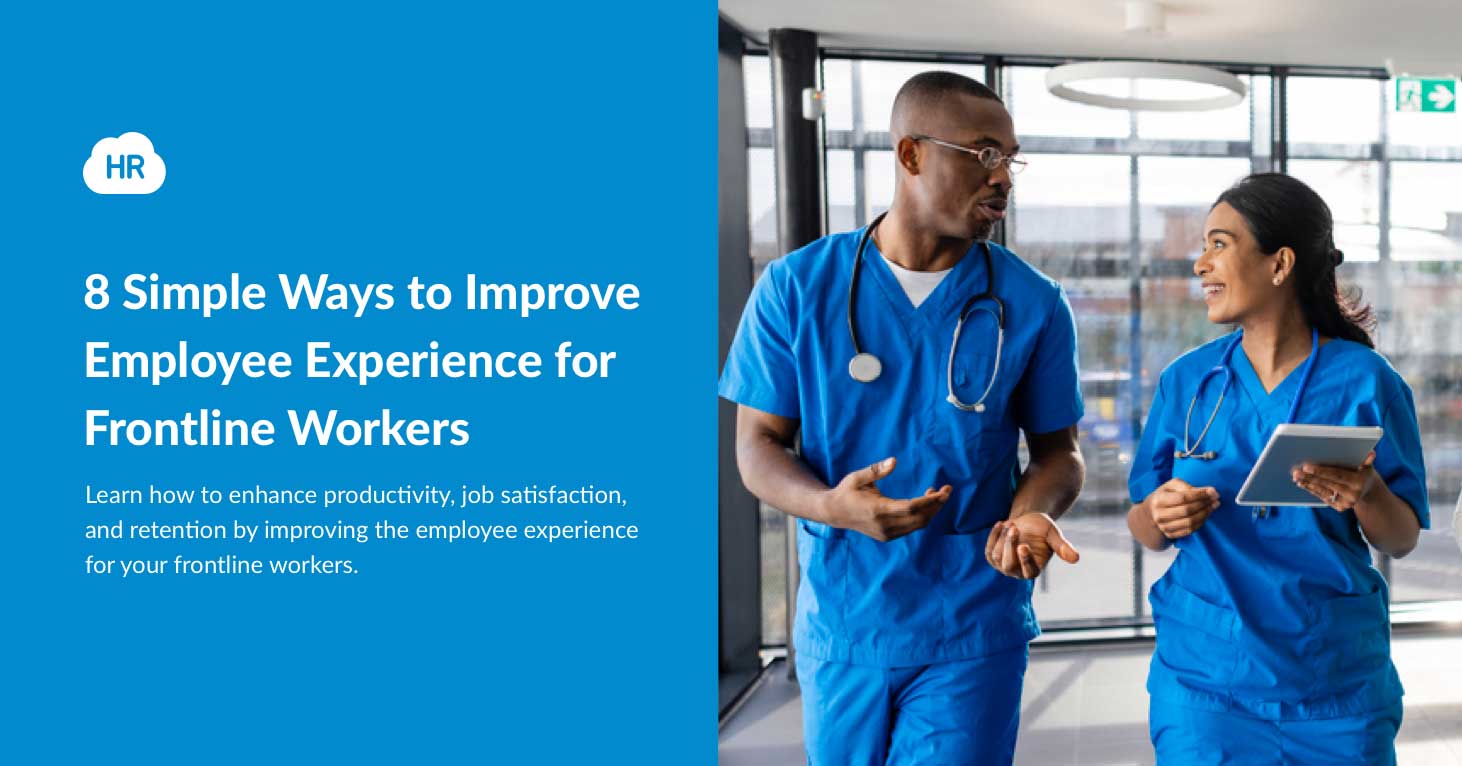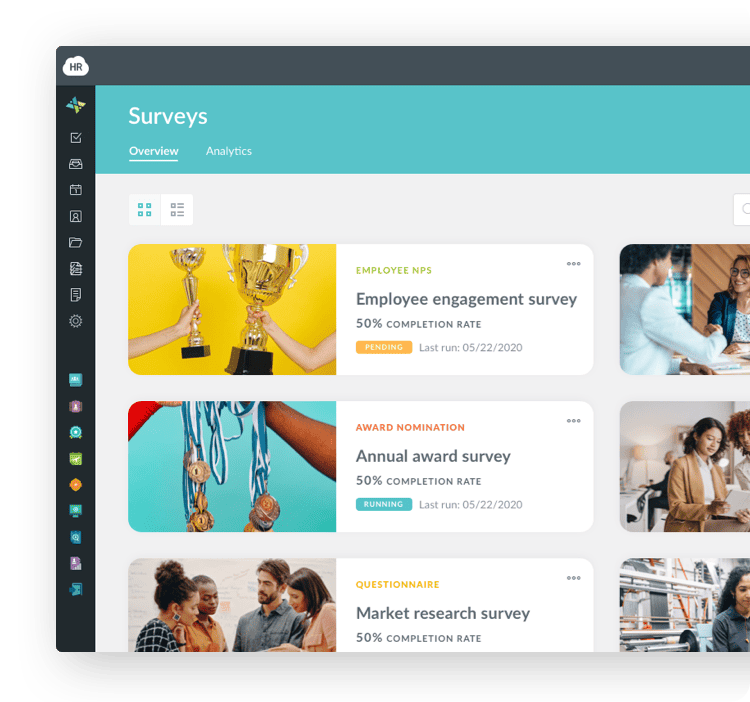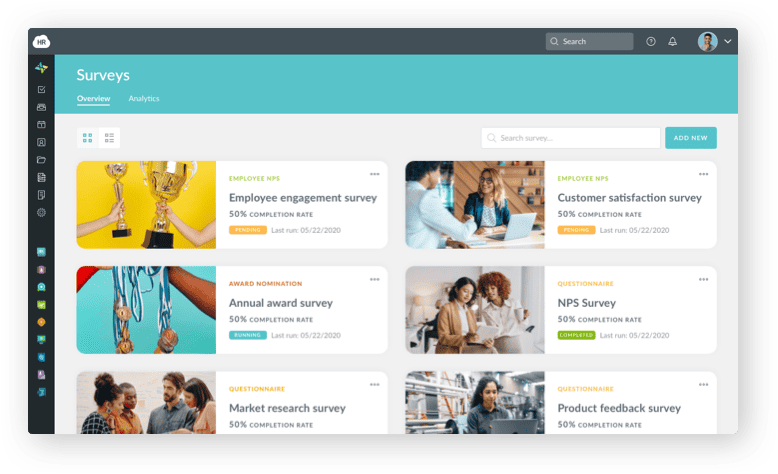8 Simple Ways to Improve Employee Experience for Frontline Workers

- The Impact of Employee Experience on Productivity and Retention
- Streamline Communication Channels
- Invest in Employee Training and Development
- Ensure Health and Safety Standards
- Encourage Feedback — and Act on It
- Streamline Processes with Digital Forms and Checklists
- Offer Flexible Scheduling Options
- Recognize and Reward Contributions
- Provide Supportive Leadership


 Cut onboarding time
by 60%—here's the
Ultimate Checklist
that helped do it.
Cut onboarding time
by 60%—here's the
Ultimate Checklist
that helped do it.

Frontline workers are the unsung heroes of the business world, often being the first point of contact for customers and playing a critical role in operational success. Despite that, they frequently grapple with challenges that can stifle their performance, including administrative burdens, ineffective team communication, and physical demands of the job. These obstacles can lead to frustration, decreased job satisfaction, and ultimately a negative impact on customer service.
This article will uncover a variety of strategies aimed at enhancing the frontline employee experience. The insights will equip business leaders and HR managers with the knowledge to foster a more engaged, satisfied, and productive frontline workforce.
The Impact of Employee Experience on Productivity and Retention 
Employee experience encapsulates everything an employee encounters, observes, or feels over the course of their journey with an organization. For frontline employees, this encompasses the quality of their interactions with management, the tools they use, and the policies that affect their day-to-day activities.
Data consistently reveals a strong correlation between positive employee experiences and increased productivity. Engaged employees are likely to go above and beyond in their roles, leading to better performance outcomes. Employee retention rates among frontline staff are heavily influenced by their overall worker experience. A positive work environment, characterized by good workplace communication and recognition, can significantly lower turnover rates and the associated costs of recruiting and training new employees.
With that in mind, here are eight different ways to improve the employee experience for frontline workers.
1. Streamline Communication Channels
Clear and consistent internal communications are crucial for frontline employees who often operate in fast-paced and dynamic environments. It ensures that they are up-to-date with company policies, product information, and customer service standards. Without effective communication channels, they may feel isolated and undervalued, which can hinder performance and morale.
To enhance workplace communication with frontline workers, companies can implement communication tools and tactics that facilitate better information flow and help to build a sense of community — mobile communication apps, digital bulletin boards, regular team huddles, and similar.
Strategies such as open-door policies and transparent workflow updates can also contribute to a more inclusive and communicative company culture.
2. Invest in Employee Training and Development
Continuous learning opportunities are vital for frontline workers to keep pace with the evolving demands of their roles. Training programs that focus on skill enhancement and career development opportunities can lead to a more versatile and adaptable workforce. Moreover, they signal that the company is invested in their personal and professional growth, which can boost morale and job satisfaction.
Tailoring training programs to the unique needs of frontline workers means offering flexible and accessible learning options, such as online courses, on-the-job training, and cross-training opportunities. These programs should account for varied shift schedules and learning preferences to ensure all frontline employees can benefit.
3. Ensure Health and Safety Standards
-
A safe working environment is not only a regulatory requirement but also a critical factor in shaping the employee experience. When frontline workers feel safe, the sense of security contributes to overall employee satisfaction and confidence in their employer's concern for their wellbeing.
Best practices for maintaining and improving health and safety measures include regular risk assessments, employee safety training, implementation of ergonomic workstations, and similar. It's also essential for companies to stay current with industry regulations and to foster a culture where safety concerns can be freely communicated, promoting psychological safety in the workplace.
4. Encourage Feedback — and Act on It
Feedback from frontline employees is invaluable: it provides direct insight into the day-to-day operations and customer interactions. This first-hand information can pinpoint areas for improvement and innovation, but it also affirms the value of the employees' voices.
To effectively gather and implement employee feedback, companies can establish regular employee surveys, pulse surveys, and open forums that encourage honest two-way communication. It is crucial, however, to close the feedback loop by taking actionable steps to address concerns and implement suggestions, providing real-time feedback to employees on their input.


5. Streamline Processes with Digital Forms and Checklists
Nobody likes paperwork. It's tedious, time-consuming, and numbingly repetitive. Reducing administration for frontline workers can be a game-changer in streamlining operations, simplifying the way information is recorded and accessed, and making routine tasks way more efficient.
Customizable digital forms and checklists offer a straightforward solution to streamline a wide variety of the company's existing processes — from audits, inspections, and assessments to any type of data collection task. Frontline workers often find checklists particularly helpful, as they reduce the complexity of tasks by providing clear, step-by-step instructions tailored to the task at hand.
Digital forms and checklists have a wide array of use cases for frontline workers:
-
They excel at data collection, ensuring accuracy and consistency across various teams and shifts.
-
They can be used to standardize operating procedures, making sure the quality of the provided service or a performed task doesn't depend on the person who is performing it.
-
They can provide up-to-date safety guidelines and procedures for complex or more dangerous tasks.
-
They enable HR departments to effortlessly collect employee feedback, which is crucial for continuous improvement.
The adoption of digital forms and checklists brings multiple benefits, chief among them being significant time savings. Additionally, these digital tools help enforce compliance with industry standards and regulations, ensuring that the company meets all necessary legal and operational requirements. This digital transformation contributes to creating a more efficient digital workplace for frontline employees.
6. Offer Flexible Scheduling Options
Flexible work schedules can make a world of difference for frontline workers, offering them control over their work-life balance. Such arrangements can decrease stress and burnout, leading to higher job satisfaction and productivity. When workers can align their job with their personal lives, it often results in increased loyalty to the company and a happier, more engaged workforce.
Flexible scheduling can be implemented through methods like shift-swapping systems and offering varied shift patterns that cater to individual employee needs. Managers can also use workforce engagement platforms to anticipate staffing needs and ensure proper shift coverage. Careful planning allows for these flexible schedules to be put in place, contributing to a positive worker experience.
7. Recognize and Reward Contributions
Recognizing the hard work of frontline staff reinforces their importance to the organization and encourages continued excellence. Such acknowledgment can manifest as increased morale and motivation, directly influencing the quality of service provided to customers.
Effective recognition programs could include personalized awards, performance-based bonuses, or even additional time off. Public praise in company-wide meetings or features in internal newsletters also serve to celebrate individual and team successes. These programs can significantly boost morale, drive motivation, and help to build a strong, inclusive workplace culture.
8. Provide Supportive Leadership
Supportive managers and company leadership are critical in shaping a positive experience for frontline workers. They are tasked with providing guidance, resolving conflicts, and fostering an environment where employees feel confident to voice their ideas and concerns.
Leadership development should focus on building empathy and support skills, with training programs designed to teach managers how to effectively listen and respond to their team's needs.
Encouraging leaders to set clear, achievable goals helps teams to succeed, while also providing the necessary resources and guidance. Regular check-ins and genuine open-door policies can further solidify the relationship between frontline workers and their leaders, leading to a more harmonious workplace and improved manager performance.
Final Thoughts
Improving the employee experience for frontline workers is essential to the health and success of any organization. Businesses that prioritize these improvements are likely to see enhanced customer satisfaction, reduced staff attrition, and better overall business results.
Integrating employee experience technology is a smart strategy for reducing the administrative burdens that often weigh down frontline workers. Such technological advancements can streamline tasks, increase efficiency, and free up employees to focus on more impactful aspects of their jobs.
Companies that embrace these solutions will both modernize their operations and empower their workforce to thrive in an increasingly digital world. By implementing a comprehensive employee experience program that addresses the unique needs of frontline workers, organizations can foster a culture of trust and rapport, leading to improved employee engagement and organizational success.
Author Bio:
Kendall Kunz is a 5x founder & business nerd with more than 30 years of experience in technology, marketing, and automation. Having held leadership positions across several industries, Kendall founded and continues to lead Forms On Fire - the #1 solution for mobile forms automation.
Keep Reading
Best Onboarding Practices for Manufacturing Companies: 15 Proven Tactics That Boost Retention
"Three simple changes to our onboarding process cut our 30-day turnover from 28% to 12%.
Equity in the Workplace: A Practical Guide to Building Fairness and Opportunity
Workplace equity shouldn't be an aspiration—it should be the foundation of how
7 Employee Relations Responsibilities That Transform Workplace Culture
Employee relations shapes how people experience work every single day. It's not just
Like What You Hear?
We'd love to chat with you more about how HR Cloud® can support your business's HR needs. Book Your Free Demo

Build a Culture of Recognition. Boost Engagement. Guaranteed.
Workmates empowers employees to stay informed, connected, and appreciated—whether they’re on the front line, in the office, or remote. Recognition drives 12x higher engagement.Trusted by industry leaders in every sector




Cut Onboarding Costs by 60%.
Take the confusion and follow-ups out of onboarding with automated workflows, digital forms, and structured portals—so new hires ramp faster 3X quicker.Trusted by industry leaders in every sector




